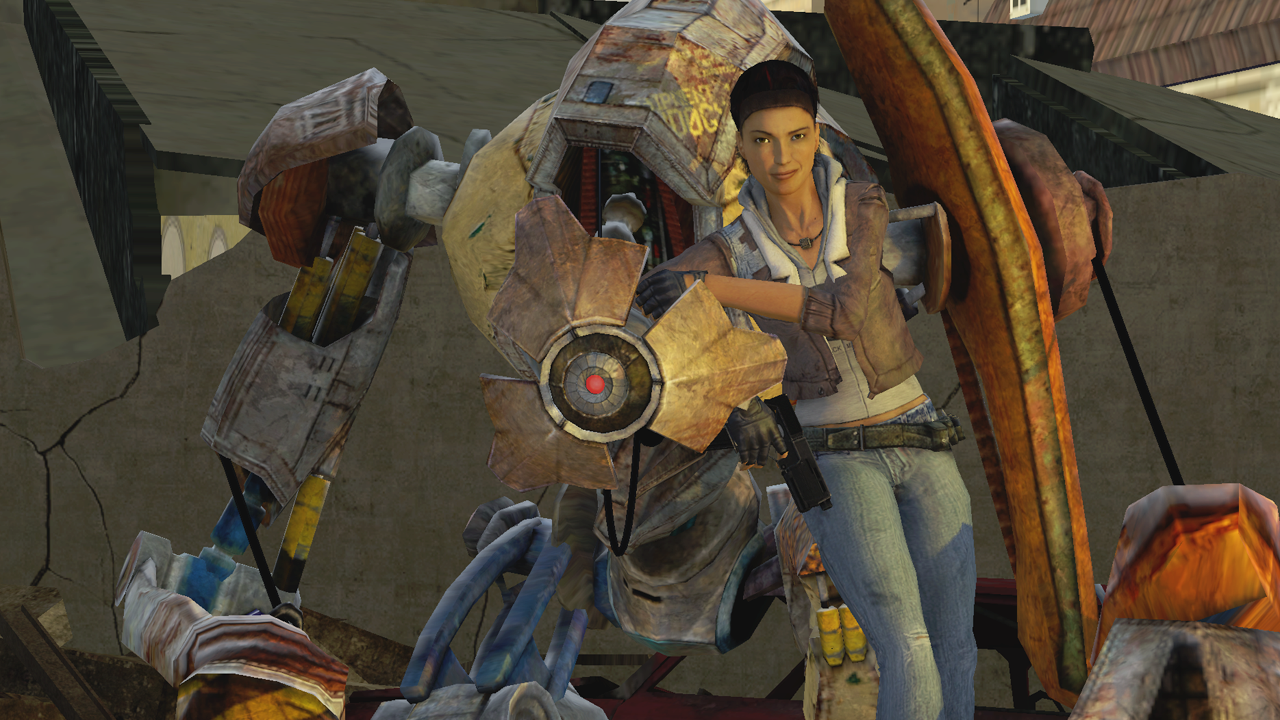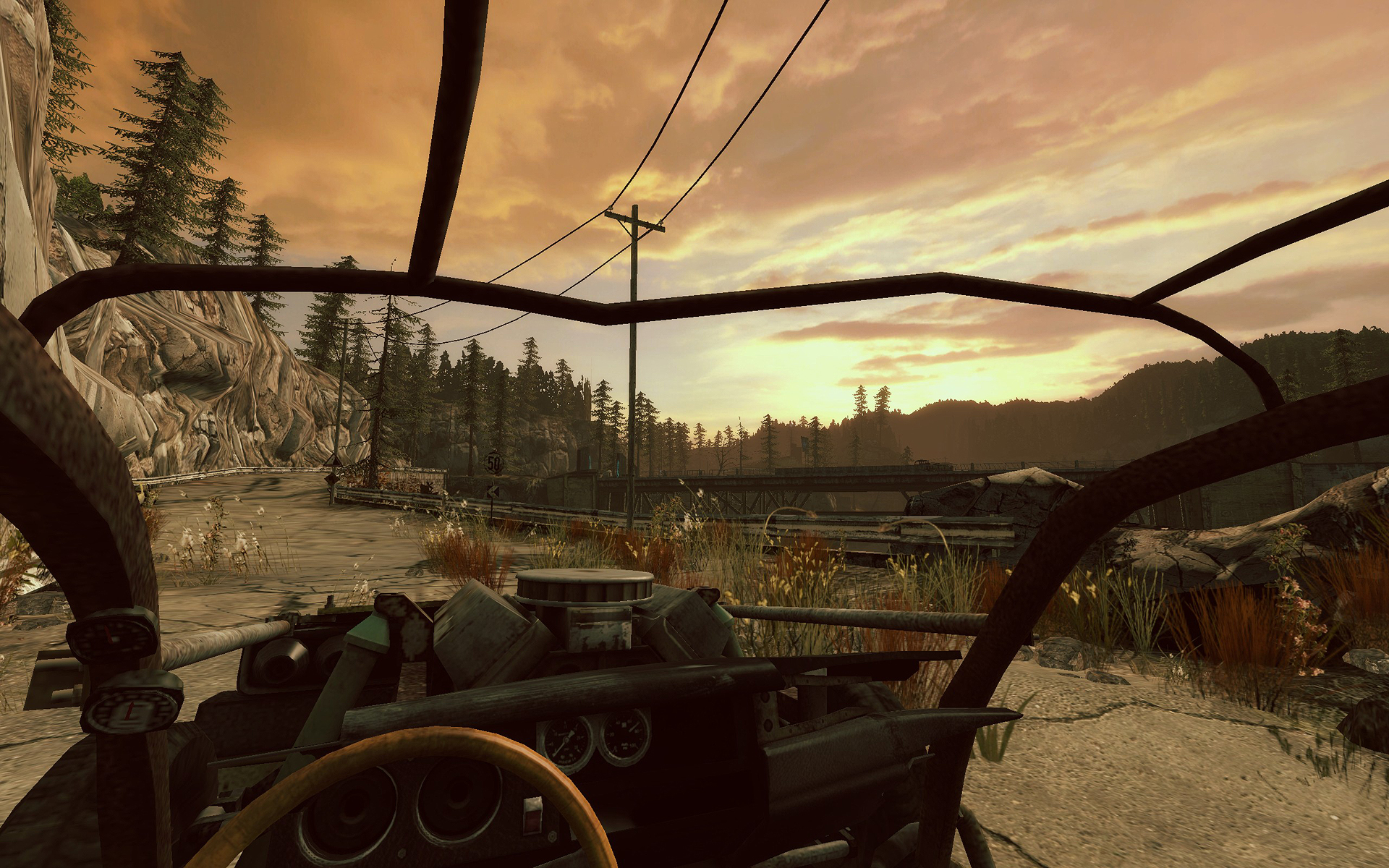Meet the minds behind Half-Life 2
What does it take to make the greatest game of our time?

There’s something about your work, actually. It’s in the eyes. Sometimes, I swear Alyx fancies me. Are you playing tricks on me?
BF: I can’t say there are any basic techniques. It’s about making them feel natural. I have in my head a shy but very alluring pose.
ML: Characters in the scenes do really over the top, crazy stuff to pretty subtle, day to day ordinary interaction. There’s Father Gregori, who is really over the top and crazy. The more time you spend with a character the more you have to tone it down, though. It would drive you nuts if every time Alyx looked at you, she was leering in. I was really surprised to hear people get quite choked up when you go in the elevator. She’s looking at you going down, hands pressed against the glass. It’s what we were going for... I’m just amazed they responded.
BVB: I think, too, that Ken Birdwell, the guy who set up our character technology, did a lot of work on eyes. That was the first thing he really solved. I’ve never seen a situation where they’ve got the eyes so right it actually feels like they’re looking at you. There’s that thing about the eyes being the window into the soul—it’s true.
BF: Oh yeah. If the eyes are wrong, there’s nothing I can do to make that character feel like she’s looking at you, or she’s grateful to you. Without that, this would be impossible.
ML: It gives the illusion of reality.
BF: Yeah. They can look not quite at you, at something behind or around. They actually focus, too. As you get further, or closer to you, they’ll track and narrow their field of vision. Otherwise there’s this feeling that they’re always looking slightly past you. We’re so cued into eyes. We can project so much via them. We can project intention.
Keep up to date with the most important stories and the best deals, as picked by the PC Gamer team.
That attention to detail in Half-Life 2 still surprises me. Even now, I don’t think we’ve really seen a competitor to Half-Life, no one’s really attempted to take you on. Why is that?
ML: After Half-Life came out, people pushed on it a bit, but immediately ran away. You could see, in the beginning, there were a bunch of games like that, with scripted sequence events, but no one tried to roll it through the whole game. You quickly run into how hard it is. And, it requires a really limited set of constraints for your game. I mean, the way we do it only really works in this type of game. I mean, we have a mute character. As soon as you put some dialogue in there, if Gordon speaks, or has a conversation tree, or something like that... then you might as well blow all these limitations off, and explore a completely different kind of space. I just don’t think that unless you’re building a Half-Life game, it makes sense to do it exactly this way.
Maybe a lot of games could benefit from emphasis on more non-essential character development. The other thing is that Bill’s comment on scenes coming into focus gradually... that’s one of the problems I have with the way writers are usually used in the industry... where they come in at the beginning, or the end, and they leave, or they take a developer’s script and polish it up. They never get to do that process where the game is continually focused on. We have our eye on every part of the game throughout development, and story is just one part of that. The scenes get to be that good because we’re all focusing on a little bit every time. It’s not like I came to Valve twice, looked at the script, went away, came back... We all have access to each other.

BF: A lot of people don’t see the whole picture, of what it takes. They’ll say, “We want to do great characters, I guess we’ll do it with more polygons... Or we’ll get some famous voice to do it.” It takes so much more than that. It takes everything. It’s all about the good acting, the good animation, the good writing, the good voices, the good technology... it’s all those things.
ML: The usual idea is to want characters that you’d care about as much as you would in a movie, or a book. Then they’ll make a movie. They’ll try and imitate a movie, and do a cutscene, or a bunch of text, so it’s like a book. But the reason I came here was to make games. Having these things happen for the first time in a game is what’s really cool. A lot of the stuff that we play around with is cliché and generic in any other medium. But there’s a whole dimension of it in the game space that’s completely unexplored. We don’t want to make movies. We want to figure out how we do these things in a game.
BVB: There’s a huge barrier to entry, too. It accounts for why Half-Life 2 took so long to ship. We started on our character presentation systems in late ’99, early 2000. Creating the system so characters can address you wherever you are, and other characters wherever they are, blend smoothly into a scene where Bill wants to take total control over how they’re interacting with each other... it’s a massive amount of technology. It’s how they blend walking in different directions. It’s about how Bill makes someone act when they may, or may not be walking. We had to create the system here, then expose it in tools so animators could actually function. I’m so grateful that Gabe [Newell—Valve founder] and Ken Birdwell [Senior Software Engineer] made it a priority to create this technology, so we were able to author for it.
I have in my head a shy but very alluring pose...
Bill Fletcher
I have this pet theory, that games are the pinnacle of human achievement. They combine every form of media, and squeeze them into a kind of playable state.
ML: Yeah. One person can’t do very much. It’s so granular. That scared me about games, originally, and it still overwhelms me occasionally. If you’re building that world, you have to build it from the atom, up. You can’t just get an actor, record them in a studio. There are so many stages—every little thing in the game has been worked on by multiple people. Are they worth the effort?
ML: Yeah.
BF: Yeah.
BVB: Yeah, definitely.
ML: When I was a writer, I would look at this huge range of people who wrote books. There was this overwhelming thought of getting into Hollywood and working on movies, all these millions of people who’ve made movies, it’s hard to figure out where you’d go to do your thing, and be really distinctive, to go and make your mark. This is the frontier, the edge. By definition, everything we’re doing is pioneering. If you did that in writing, you’d just have no audience, because experimental tends to mean so obtuse that no one enjoys it. We get to experiment in this popular form of entertainment. We’re creating worlds that have never been seen before. That’s totally worth it.

